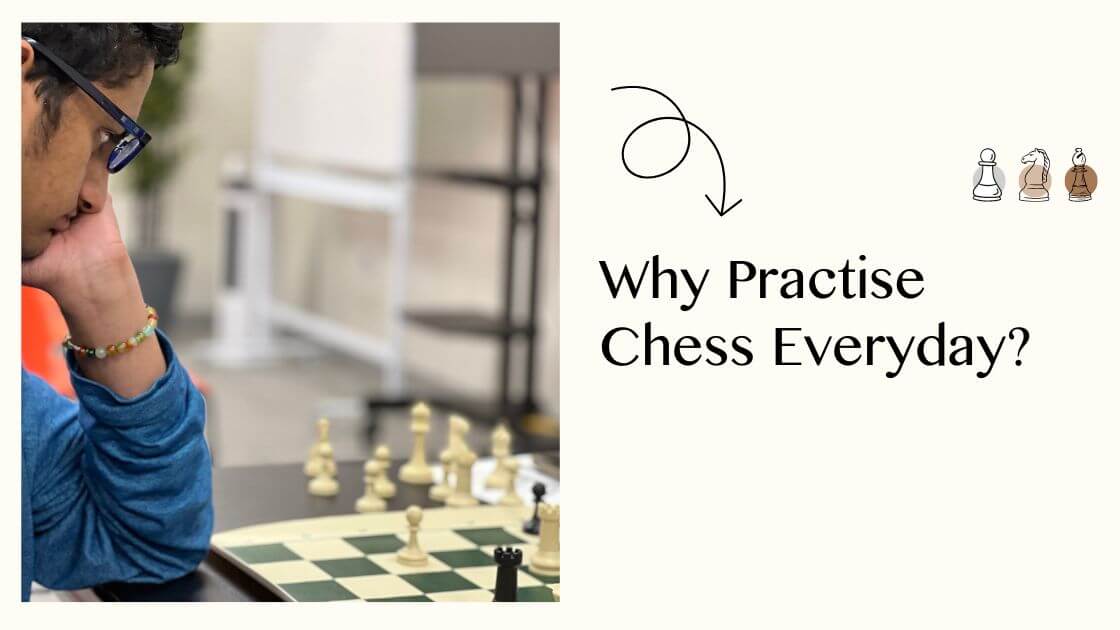Mastering the Game of Chess is Not Too Hard

At CHESS KLUB, we believe that practice helps us increase our ability to access information rapidly and automatically. Practice also frees our brains to process more challenging information and problems.
We constantly try to imbibe the spirit of mastering this brilliant game through a sorcery we called ‘practice’.
Practicing chess every day can offer a wide range of benefits, whether you’re a casual player or aiming to become a competitive master. Here are 10 reasons why you should consider practicing chess daily:
Mental Stimulation
Chess is a highly complex game that requires strategic thinking, planning, and problem-solving. Regular practice keeps your mind sharp and engaged, enhancing cognitive skills and mental agility.
Improved Concentration
Chess demands focused attention and concentration. By practicing daily, you can enhance your ability to concentrate on tasks in other areas of your life as well.
Strategic Thinking
Chess involves long-term planning and the ability to think several moves ahead. Regular practice hones your strategic thinking skills, which can be applied to decision-making in various real-life situations.
Improved Critical Thinking
Chess requires strategic planning and decision-making, enhancing your ability to think critically and solve complex problems.
Pattern Recognition
Repeated practice helps you recognize common patterns and tactics, allowing you to quickly identify opportunities and threats on the board.
Memory Development
Memorizing openings, strategies, and historical games can boost your memory capacity and retrieval skills, contributing to better cognitive abilities.
Decision-Making Under Pressure
Chess simulates decision-making under time constraints, teaching you to make optimal choices quickly and efficiently, a valuable skill in various aspects of life.
Resilience and Adaptability
Consistent practice exposes you to various styles of play and unexpected scenarios, promoting adaptability and resilience in the face of challenges.
Emotional Control
Chess can elicit strong emotions, from excitement to frustration. Regular practice helps you manage these emotions, fostering emotional control and stability.
Analytical Skills
Post-game analysis and self-reflection after daily practice sessions improve your ability to assess your performance objectively and identify areas for improvement.
Lifelong Learning
Chess is a deep and intricate game with a vast amount of theory and history. Engaging with it daily fosters a lifelong love for learning and personal growth.
Social Interaction
Chess is a universal game that transcends cultural and language barriers. Regular practice allows you to connect with a global community of players, fostering social interactions and friendships.
Remember, the key to reaping these benefits is consistent and deliberate practice. Regularly challenging yourself, seeking opportunities to learn, and embracing the lessons from each game will help you improve not only as a chess player but also as a thinker and problem solver in all aspects of life.
At CHESS KLUB, we make it easier for you with daily puzzles and constant tournaments to make this process a lot simpler and more accessible. Use this to your advantage by joining the CHESS KLUB community NOW!




